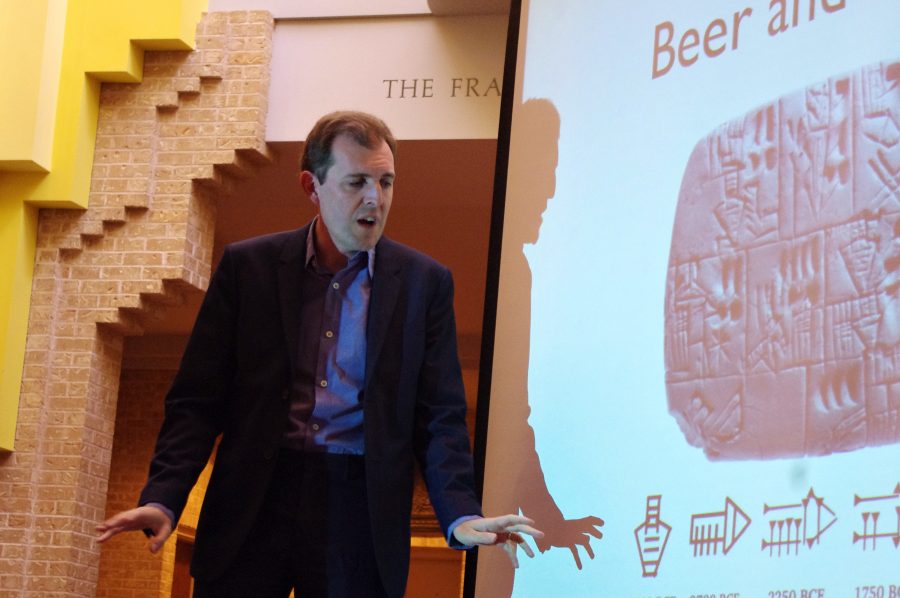Six drinks — beer, wine, spirits, coffee, tea and cola — have played major roles in defining history, Tom Standage, lead digital editor at The Economist, said in a lecture at the Etter-Harbin Alumni Center on Wednesday.
The lecture, cosponsored by the IC2 Institute, the Moody College of Communication and the McCombs School of Business, covered Standage’s new book, “A History of the World in 6 Glasses.”
According to Standage, beer was the first drink to shape history. He said that it was accidentally discovered with wheat and became so popular that it was one of the main contributing factors for the switch to agriculture from a hunter-gatherer lifestyle.
Standage said that since beer was something that couldn’t be stored before 800 B.C., wine was created. According to Standage, the drink aided the creation of a sophisticated society and attributed to a separation of classes.
“You get a cultural and a social hierarchy as a result, where everyone drinks wine, but which wine you drink matches your social status,” Standage said.
Standage said spirits became prevalent for long journeys overseas and played a part in the economy of their time period because they were used as currency during the slave trade.
He said coffee was a revolutionary drink because coffeehouses were places where intellectuals would gather to discuss important topics.
“The coffeehouse that people go to discuss stock trades was eventually what created the London Stock Exchange,” Standage said.
Spanish freshman Sofia Mitre said she believes Standage’s ideas are plausible and thinks students should look into fresh ideas that are presented on campus through lectures.
“It’s definitely a nontraditional way of thinking,” Mitre said. “I think it’s always important to look at things in various perspectives and create your own [opinions] instead of accepting what one person tells you or what one textbook says.”
Bruce Kellison, associate director of the IC2 Institute, said he believes Standage’s style of thinking is important, which is why he helped bring him to UT.
“It makes history come alive and accessible,” Kellison said. “It brings in three very active departments on campus who are interested in these topics but in a new and fresh way.”





















